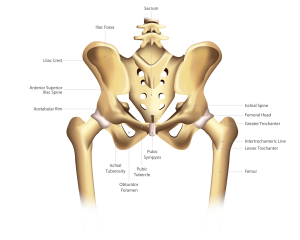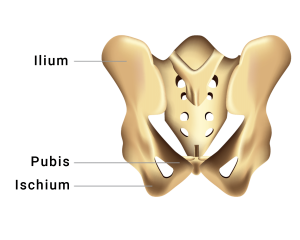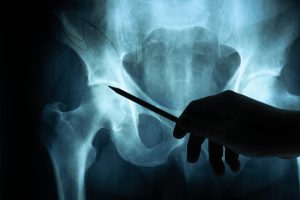Hip Pain After Car Accidents: Causes, Signs, and What to Do
Hip pain is one of the most common injury symptoms reported after a car accident. This pain can range from mild to severe and it may be short-lived or last for months. No matter the level of hip pain you experience, it’s important that action is taken quickly to avoid long-term damage.
If you have experienced hip pain as a result of a car accident, it’s important to understand the extent of your injuries and the steps that you should take.
The most important thing that you should do about your hip pain is to see a doctor as soon as possible so that you can get on the road to recovery.
After that, you should speak with a car accident attorney. You may be eligible to file a lawsuit and receive compensation for your injuries.

The Common Causes of Hip Pain from Car Accidents
Fractures, bursitis, dislocation, sprains, or tendonitis are the most common causes of pain in the hip after a collision. These are associated with injuries like:
- Hip fracture
- Acetabular fracture
- Hip dislocation
- Hip labral tear
- Bursitis
- Tendonitis
- Hip ligament sprain

Hip Fractures
The hip is one of the largest joints in the human body and is one of the body’s largest weight-bearing joints. The bones of the hip can be broken down into three parts:
- Ilium
- Pubis
- Ischium
It has a strong attachment to the thighbone. It provides stability to your hip for strength and balance while you walk or run.
A hip fracture, or broken hip, occurs whenever a break or tear happens to any one of these parts of the hip.
Aceteabular Fracture
An acetabular fracture is a break or a crack in the outside rim of the hip socket that holds the hip and thigh bones together. A fracture to this part of the body isn’t as common because of its location. Significant impact is often necessary to cause a fracture.
Hip Dislocation
A hip dislocation means that the ball of the femur has popped out of the socket, allowing the upper leg bone to slide out of place. Hip dislocations can cause avascular necrosis, which is the death of bone tissue due to interruption in blood supply.
Hip Labral Tear
A hip labral tear is a type of joint damage in which the labrum, a soft tissue that covers the socket of the hip, is torn. This tissue is responsible for making sure that the head of the thighbone moves smoothly in the hip joint. Damage to the labrum can lead to severe pain and can affect your mobility.
Bursitis
Bursitis is an inflammation of the bursa, which is a fluid-filled sac that provides cushioning or material between bones and muscles. It is one of the main causes of hip pain after a car accident and requires immediate medical attention.
Tendonitis
Tendonitis is a type of injury that affects soft tissue, which includes things like tendons and ligaments, as opposed to bone and muscle.
Tendonitis can result in a lot of pain and additional discomfort in the hip area if left untreated by a medical professional.
Hip Ligament Sprains or Strains
A hip ligament sprain or strain is caused by overstretched or torn ligaments in the hip. These tissues attach bones to other bones and provide stability to the joints of a person’s body.
These types of injuries may only require rest and ice to heal but physical therapy and other medical procedures may be necessary in some cases.

Hip Injury Symptoms to Look Out For
If you experience any of the following symptoms after a car accident, you may have suffered a hip injury and should seek medical attention:
- Loss of movement
- Loss of muscle strength
- Intense pain when walking
- Difficulty moving the hip joint
- Limping
- Swelling
- Bruising
- Knee pain
- Groin pain
- Abdominal pain
- Soreness or tenderness at the site of injury
Can Hip Injury Symptoms be Delayed?
Yes, the pain for hip injuries caused by a car accident can be delayed. The symptoms of the injury might not manifest until hours or even days after the accident. The adrenaline, endorphins, and other signals your brain sends to your body after stressful situations like an accident could cover up the pain.
Injuries that are not detected early often result in an increased risk of complication and long-term pain. This is what makes delayed symptoms so dangerous.
Delayed symptoms are not just limited to hip pain either. You may experience delayed chest pain, stomach pain, back pain, muscle pain or other types of Injuries after a crash.
Even if don’t you feel any pain after a crash, make sure to see a doctor as soon as you can instead of waiting for symptoms to show up. An evaluation of your injuries can help reduce their severity and improve your chances of faster healing.

How is Hip Pain Treated?
Hip pain should always be evaluated by a doctor. With the help of a physical examination and diagnostics like X-rays, CT Scans, or an MRI, your physician will be able to give you a diagnosis and recommend treatment options.
Treatment for hip injuries after a car accident depends on the severity of the injury. For example, hip fractures often require immediate surgery while other injuries may only require pain medication and some rest.
Some examples of treatment for hip injuries include:
- Pain and anti-inflammatory medication
- Rest
- Physical therapy
- Steroid injections
- Surgery
- Total hip replacement
How Long Does Hip Pain Last?
Some injuries take longer to heal than others. This means that the amount of time you experience hip pain after an accident will depend on your diagnosis.
Some conditions are mild enough to have you back on your feet in a matter of weeks, while others can take months or even years to heal.
What to Do if You Have Hip Pain After a Car Accident
The first thing that you should do after any car accident is to seek medical care. This is the only way to get a proper diagnosis and treatment for your injuries. It will also allow you to understand what you can expect from your treatment, including a timeline to recovery and insight into any complications that may arise.
If you don’t go to a doctor right away and begin experiencing delayed pain, it’s not too late! You should still go to see a doctor so that they can develop a complete treatment plan for you.
You should keep a record of all of your medical bills and expenses caused by your injury. Keep accurate records of your damages is important if you want to seek compensation.
After you have seen a doctor, you should reach out to an experienced car accident attorney. A car accident attorney can help you gather all of the information that you need to file a lawsuit to hold the negligent parties accountable for your injuries. An attorney will help build your case and negotiate on your behalf to get you the compensation that you deserve.
Compensation is Available to Victims of Car Accident Hip Pain
If you choose to work with an attorney to file a lawsuit for hip pain resulting from a car accident, you may be eligible for many different types of compensation for your damages.
An attorney can help you recover for things like:
- Past and future medical expenses
- Home healthcare expenses
- The cost of durable medical equipment
- Physical therapy
- Lost income or lost wages
- Pain and suffering
- Emotional distress
- Loss of companionship or loss of consortium
The Bryant Law Center is Here to Help
If you have experienced hip pain as a result of a car accident, we can help.
The experienced car accident attorneys at the Bryant Law Center have been helping injured people for decades. We will work on your behalf against the at-fault parties to get you the compensation you deserve.
We know what you’re going through and we will be with you every step of the way. We have a proven track record of winning our clients fair compensation for their damages including hip pain, pain and suffering, future medical expenses, loss of income, and more.
Our attorneys work on a contingency fee basis which means that you don’t pay anything unless we win. To learn more about how we can help you, contact us today for a free consultation.**
